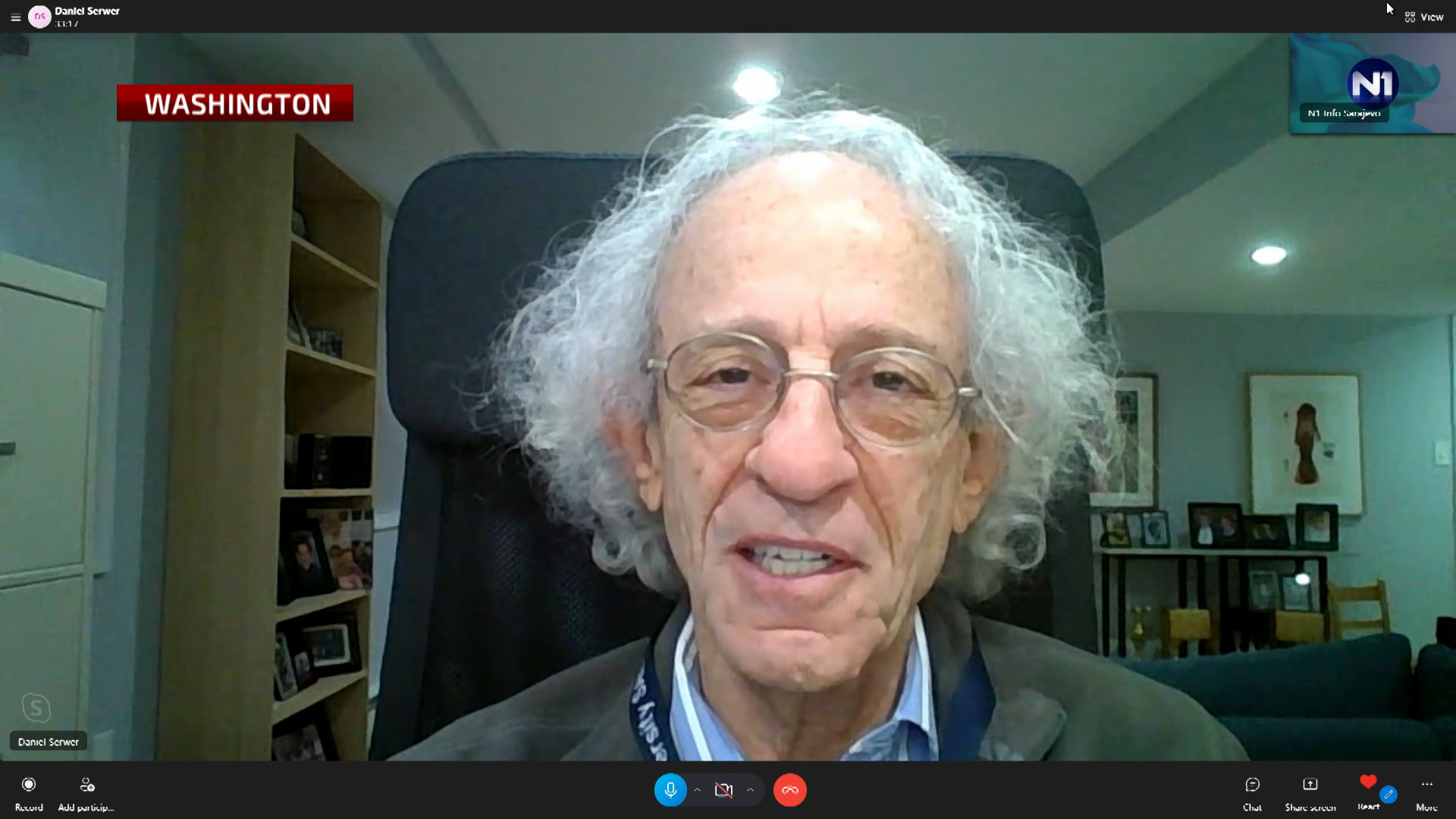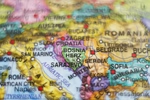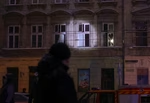
The West’s Balkans strategy is based on making Serbia a western-oriented stabilizing force of the entire region, Daniel Serwer, international expert for the Balkans and professor at the American Johns Hopkins University told N1 Wednesday, adding that if the East-West division line is drawn in the Balkans, it could even go through Bosnia and Herzegovina.
The western strategy in the Balkans is based on the fact that Serbia can be a western-oriented force of stability of the entire region, Serwer said, noting that he thinks this was wrong.
“The line between East and West could be drawn through the Balkans and Serbia, with its leadership, would, in my opinion, then choose the East and Russia. If Russia fails in Ukraine, then Serbia will choose China” Professor Serwer said.
When asked to elaborate on where the line could go, he said it could even go through Bosnia
“The big question is whether the line will go along the inter-entity border or whether Bosnia and Herzegovina will be part of the West. There is no doubt that the majority of BiH citizens want the West, but I am not sure that Dayton
Peace Agreement], which left warring forces in power, would allow for the whole of BiH to join the West. Maybe some ‘buffer’ zone could remain,” he pointed out.
Speaking about the claims of the outgoing Serb Presidency member Milorad Dodik that he has the support of 10 countries to declare the Republika Srpska (RS) entity’s independence, the Balkans expert said he probably has the support of Russia, for such a thing.
“I think that Dodik has the support of Russia and I would take that seriously. I don't think anyone would accept the independence of Republika Srpska and it would then join Serbia. What Washington and Brussels would do then, I can't tell, but they’d never recognize an independent Republika Srpska. I'm afraid the future looks pretty bleak if this line is drawn through an inter-entity line. It would be much better if all of Bosnia and Herzegovina, Montenegro and Kosovo joined the West;” he said and then touched upon the potential for war in Bosnia:
“I think that there is a real risk of instability in BiH if Dodik takes steps towards independence. I don't know if I would call it a war, but it’s unpredictable. It is unacceptable that he threatens the sovereignty of the state which was the reason for the previous war
1992-1995], I don't see why it wouldn't be
a reason] for a future one as well.”
Serwer was asked to comment on the latest High Representative Christian Schmidt’s decision to amend the BiH Election Law and the Federation (FBiH) entity Constitution with the aim of “making the FBiH functional” as he put it, to which the N1’s interlocutor said that the decision favoured the Croat Democratic Union (HDZ BiH – a centre right ethnic-oriented party) with which they “gained a really good deal” with the Dayton Agreement giving them “half of the FBiH and a third of the country” all the while there is less than 17 percent of Croats in the entire country.
“I'll be clear. It is a very difficult and unexpected decision. You cannot change election rules on voting day. This is simply unacceptable. Although the intention of these changes was to simplify decision-making, it turns out that this decision particularly favours the HDZ BiH. Why should HDZ be favoured and given priority? This party is increasingly an anti-Dayton force in Bosnia and Herzegovina. We shouldn’t do anything that increases the probability of HDZ gaining power,” he said.
“The Croats got a very good deal in Dayton, they got half of FBiH and a third of the country, and they are less than 17 percent. They had a good negotiating position because they controlled the flow of people and troops from the Adriatic towards the territory controlled by the Army of the Republic of Bosnia and Herzegovina
in 1995 when the Peace Agreement was signed]. That situation no longer exists today. Today, Croat nationalists are a bigger anti-state force than they were at the time of Dayton, and it's time to recognize that. And for the international community to open its eyes to the intentions of
HDZ BiH leader ragan] Covic and Dodik in order to understand what is happening,” Serwer warned.
In his opinion, Schmidt would not have imposed his decision if he did not have the support of Washington, which views these issues in Bosnia and Herzegovina in a wrong way and should reconsider its policies towards the country.
Kakvo je tvoje mišljenje o ovome?
Učestvuj u diskusiji ili pročitaj komentare





 Srbija
Srbija
 Hrvatska
Hrvatska
 Slovenija
Slovenija



























































